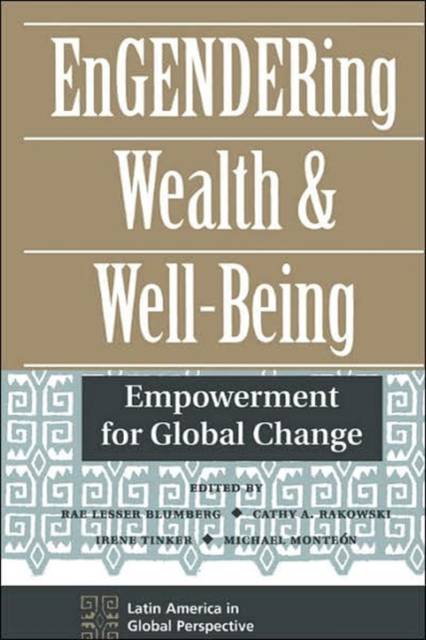
- Afhalen na 1 uur in een winkel met voorraad
- Gratis thuislevering in België vanaf € 30
- Ruim aanbod met 7 miljoen producten
- Afhalen na 1 uur in een winkel met voorraad
- Gratis thuislevering in België vanaf € 30
- Ruim aanbod met 7 miljoen producten
Zoeken
Engendering Wealth And Well-being
Empowerment For Global Change
Rae Lesser Blumberg, Cathy Rakowski, Irene Tinker
€ 111,45
+ 222 punten
Omschrijving
This volume explores the significant contributions women make to the wealth and well-being of their families and nations and focuses on important issues: the gendered dimensions of economic transformation, restructuring, and social changes. It imposes a conceptual framework for the study of gender.
Specificaties
Betrokkenen
- Auteur(s):
- Uitgeverij:
Inhoud
- Aantal bladzijden:
- 328
- Taal:
- Engels
- Reeks:
Eigenschappen
- Productcode (EAN):
- 9780813321073
- Verschijningsdatum:
- 27/04/1995
- Uitvoering:
- Paperback
- Formaat:
- Trade paperback (VS)
- Afmetingen:
- 152 mm x 228 mm
- Gewicht:
- 439 g

Alleen bij Standaard Boekhandel
+ 222 punten op je klantenkaart van Standaard Boekhandel
Beoordelingen
We publiceren alleen reviews die voldoen aan de voorwaarden voor reviews. Bekijk onze voorwaarden voor reviews.







